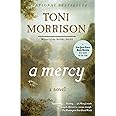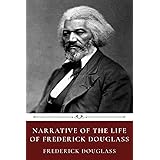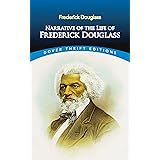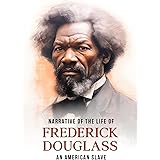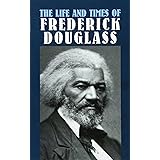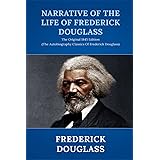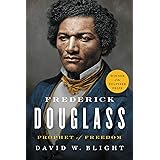
Enjoy fast, free delivery, exclusive deals, and award-winning movies & TV shows with Prime
Try Prime
and start saving today with fast, free delivery
Amazon Prime includes:
Fast, FREE Delivery is available to Prime members. To join, select "Try Amazon Prime and start saving today with Fast, FREE Delivery" below the Add to Cart button.
Amazon Prime members enjoy:- Cardmembers earn 5% Back at Amazon.com with a Prime Credit Card.
- Unlimited Free Two-Day Delivery
- Streaming of thousands of movies and TV shows with limited ads on Prime Video.
- A Kindle book to borrow for free each month - with no due dates
- Listen to over 2 million songs and hundreds of playlists
- Unlimited photo storage with anywhere access
Important: Your credit card will NOT be charged when you start your free trial or if you cancel during the trial period. If you're happy with Amazon Prime, do nothing. At the end of the free trial, your membership will automatically upgrade to a monthly membership.
Buy new:
-27% $10.19$10.19
Ships from: Amazon.com Sold by: Amazon.com
Save with Used - Good
$7.24$7.24
Ships from: Amazon Sold by: RNA TRADE LLC

Download the free Kindle app and start reading Kindle books instantly on your smartphone, tablet, or computer - no Kindle device required.
Read instantly on your browser with Kindle for Web.
Using your mobile phone camera - scan the code below and download the Kindle app.

OK
 Audible sample Sample
Audible sample Sample 


Narrative of the Life of Frederick Douglass, an American Slave (Penguin Classics) Paperback – January 28, 2014
Purchase options and add-ons
The preeminent American slave narrative first published in 1845, Frederick Douglass’s Narrative powerfully details the life of the abolitionist from his birth into slavery in 1818 to his escape to the North in 1838, how he endured the daily physical and spiritual brutalities of his owners and driver, how he learned to read and write, and how he grew into a man who could only live free or die. In addition to Douglass’s classic autobiography, this new edition also includes his most famous speech “What to the Slave Is the Fourth of July?” and his only known work of fiction, The Heroic Slave, which was written, in part, as a response to Harriet Beecher Stowe’s Uncle Tom’s Cabin.
For more than sixty-five years, Penguin has been the leading publisher of classic literature in the English-speaking world. With more than 1,500 titles, Penguin Classics represents a global bookshelf of the best works throughout history and across genres and disciplines. Readers trust the series to provide authoritative texts enhanced by introductions and notes by distinguished scholars and contemporary authors, as well as up-to-date translations by award-winning translators.
- Print length224 pages
- LanguageEnglish
- PublisherPenguin Classics
- Publication dateJanuary 28, 2014
- Dimensions0.7 x 5.1 x 7.7 inches
- ISBN-100143107305
- ISBN-13978-0143107309
- Lexile measure550L
The Amazon Book Review
Book recommendations, author interviews, editors' picks, and more. Read it now.
Frequently bought together

Similar items that may deliver to you quickly
Editorial Reviews
About the Author
Ira Dworkin is the associate director of the Prince Alwaleed Center for American Studies and Research and Assistant Professor of English and Comparative Literature at The American University in Cairo.
Excerpt. © Reprinted by permission. All rights reserved.
Chapter I.
I was born in Tuckahoe, near Hillsborough, and about twelve miles from Easton, in Talbot county, Maryland. I have no accurate knowledge of my age, never having seen any authentic record containing it. By far the larger part of the slaves know as little of their ages as horses know of theirs, and it is the wish of most masters within my knowledge to keep their slaves thus ignorant. I do not remember to have ever met a slave who could tell of his birthday. They seldom come nearer to it than planting-time, harvest-time, cherry-time, spring-time, or fall-time. A want of information concerning my own was a source of unhappiness to me even during childhood. The white children could tell their ages. I could not tell why I ought to be deprived of the same privilege. I was not allowed to make any inquiries of my master concerning it. He deemed all such inquiries on the part of a slave improper and impertinent, and evidence of a restless spirit. The nearest estimate I can give makes me now between twenty-seven and twenty-eight years of age. I come to this, from hearing my master say, some time during 1835, I was about seventeen years old.
My mother was named Harriet Bailey. She was the daughter of Isaac and Betsey Bailey, both colored, and quite dark. My mother was of a darker complexion than either my grandmother or grandfather.
My father was a white man. He was admitted to be such by all I ever heard speak of my parentage. The opinion was also whispered that my master was my father; but of the correctness of this opinion, I know nothing; the means of knowing was withheld from me. My mother and I were separated when I was but an infant-before I knew her as my mother. It is a common custom, in the part of Maryland from which I ran away, to part children from their mothers at a very early age. Frequently, before the child has reached its twelfth month, its mother is taken from it, and hired out on some farm a considerable distance off, and the child is placed under the care of an old woman, too old for field labor. For what this separation is done, I do not know, unless it be to hinder the development of the child's affection toward its mother, and to blunt and destroy the natural affection of the mother for the child. This is the inevitable result.
I never saw my mother, to know her as such, more than four or five times in my life; and each of these times was very short in duration, and at night. She was hired by a Mr. Stewart, who lived about twelve miles from my home. She made her journeys to see me in the night, travelling the whole distance on foot, after the performance of her day's work. She was a field hand, and a whipping is the penalty of not being in the field at sunrise, unless a slave has special permission from his or her master to the contrary-a permission which they seldom get, and one that gives to him that gives it the proud name of being a kind master. I do not recollect of ever seeing my mother by the light of day. She was with me in the night. She would lie down with me, and get me to sleep, but long before I waked she was gone. Very little communication ever took place between us. Death soon ended what little we could have while she lived, and with it her hardships and suffering. She died when I was about seven years old, on one of my master's farms, near Lee's Mill. I was not allowed to be present during her illness, at her death, or burial. She was gone long before I knew any thing about it. Never having enjoyed, to any considerable extent, her soothing presence, her tender and watchful care, I received the tidings of her death with much the same emotions I should have probably felt at the death of a stranger.
Called thus suddenly away, she left me without the slightest intimation of who my father was. The whisper that my master was my father, may or may not be true; and, true or false, it is of but little consequence to my purpose whilst the fact remains, in all its glaring odiousness, that slaveholders have ordained, and by law established, that the children of slave women shall in all cases follow the condition of their mothers; and this is done too obviously to administer to their own lusts, and make a gratification of their wicked desires profitable as well as pleasurable; for by this cunning arrangement, the slaveholder, in cases not a few, sustains to his slaves the double relation of master and father.
I know of such cases; and it is worthy of remark that such slaves invariably suffer greater hardships, and have more to contend with, than others. They are, in the first place, a constant offence to their mistress. She is ever disposed to find fault with them; they can seldom do any thing to please her; she is never better pleased than when she sees them under the lash, especially when she suspects her husband of showing to his mulatto children favors which he withholds from his black slaves. The master is frequently compelled to sell this class of his slaves, out of deference to the feelings of his white wife; and, cruel as the deed may strike any one to be, for a man to sell his own children to human flesh-mongers, it is often the dictate of humanity for him to do so; for, unless he does this, he must not only whip them himself, but must stand by and see one white son tie up his brother, of but few shades darker complexion than himself, and ply the gory lash to his naked back; and if he lisp one word of disapproval, it is set down to his parental partiality, and only makes a bad matter worse, both for himself and the slave whom he would protect and defend.
Every year brings with it multitudes of this class of slaves. It was doubtless in consequence of a knowledge of this fact, that one great statesman of the south predicted the downfall of slavery by the inevitable laws of population. Whether this prophecy is ever fulfilled or not, it is nevertheless plain that a very different-looking class of people are springing up at the south, and are now held in slavery, from those originally brought to this country from Africa; and if their increase will do no other good, it will do away the force of the argument, that God cursed Ham, and therefore American slavery is right. If the lineal descendants of Ham are alone to be scripturally enslaved, it is certain that slavery at the south must soon become unscriptural; for thousands are ushered into the world, annually, who, like myself, owe their existence to white fathers, and those fathers most frequently their own masters.
I have had two masters. My first master's name was Anthony. I do not remember his first name. He was generally called Captain Anthony-a title which, I presume, he acquired by sailing a craft on the Chesapeake Bay. He was not considered a rich slaveholder. He owned two or three farms, and about thirty slaves. His farms and slaves were under the care of an overseer. The overseer's name was Plummer. Mr. Plummer was a miserable drunkard, a profane swearer, and a savage monster. He always went armed with a cowskin and a heavy cudgel. I have known him to cut and slash the women's heads so horribly, that even master would be enraged at his cruelty, and would threaten to whip him if he did not mind himself. Master, however, was not a humane slaveholder. It required extraordinary barbarity on the part of an overseer to affect him. He was a cruel man, hardened by a long life of slaveholding. He would at times seem to take great pleasure in whipping a slave. I have often been awakened at the dawn of day by the most heart-rending shrieks of an own aunt of mine, whom he used to tie up to a joist, and whip upon her naked back till she was literally covered with blood. No words, no tears, no prayers, from his gory victim, seemed to move his iron heart from its bloody purpose. The louder she screamed, the harder he whipped; and where the blood ran fastest, there he whipped longest. He would whip her to make her scream, and whip her to make her hush; and not until overcome by fatigue, would he cease to swing the blood-clotted cowskin. I remember the first time I ever witnessed this horrible exhibition. I was quite a child, but I well remember it. I never shall forget it whilst I remember any thing. It was the first of a long series of such outrages, of which I was doomed to be a witness and a participant. It struck me with awful force. It was the blood-stained gate, the entrance to the hell of slavery, through which I was about to pass. It was a most terrible spectacle. I wish I could commit to paper the feelings with which I beheld it.
This occurrence took place very soon after I went to live with my old master, and under the following circumstances. Aunt Hester went out one night,-where or for what I do not know,-and happened to be absent when my master desired her presence. He had ordered her not to go out evenings, and warned her that she must never let him catch her in company with a young man, who was paying attention to her, belonging to Colonel Lloyd. The young man's name was Ned Roberts, generally called Lloyd's Ned. Why master was so careful of her, may be safely left to conjecture. She was a woman of noble form, and of graceful proportions, having very few equals, and fewer superiors, in personal appearance, among the colored or white women of our neighborhood.
Aunt Hester had not only disobeyed his orders in going out, but had been found in company with Lloyd's Ned; which circumstance, I found, from what he said while whipping her, was the chief offence. Had he been a man of pure morals himself, he might have been thought interested in protecting the innocence of my aunt; but those who knew him will not suspect him of any such virtue. Before he commenced whipping Aunt Hester, he took her into the kitchen, and stripped her from neck to waist, leaving her neck, shoulders, and back, entirely naked. He then told her to cross her hands, calling her at the same time a d--d b--h. After crossing her hands, he tied them with a strong rope, and led her to a stool under a large hook in the joist, put in for the purpose. He made her get upon the stool, and tied her hands to the hook. She now stood fair for his infernal purpose. Her arms were stretched up at their full length, so that she stood upon the ends of her toes. He then said to her, "Now, you d--d b--h, I'll learn you how to disobey my orders!" and after rolling up his sleeves, he commenced to lay on the heavy cowskin, and soon the warm, red blood (amid heart-rending shrieks from her, and horrid oaths from him) came dripping to the floor. I was so terrified and horror-stricken at the sight, that I hid myself in a closet, and dared not venture out till long after the bloody transaction was over. I expected it would be my turn next. It was all new to me. I had never seen any thing like it before. I had always lived with my grandmother on the outskirts of the plantation, where she was put to raise the children of the younger women. I had therefore been, until now, out of the way of the bloody scenes that often occurred on the plantation.
Chapter II.
My master's family consisted of two sons, Andrew and Richard; one daughter, Lucretia, and her husband, Captain Thomas Auld. They lived in one house, upon the home plantation of Colonel Edward Lloyd. My master was Colonel Lloyd's clerk and superintendent. He was what might be called the overseer of the overseers. I spent two years of childhood on this plantation in my old master's family. It was here that I witnessed the bloody transaction recorded in the first chapter; and as I received my first impressions of slavery on this plantation, I will give some description of it, and of slavery as it there existed. The plantation is about twelve miles north of Easton, in Talbot county, and is situated on the border of Miles River. The principal products raised upon it were tobacco, corn, and wheat. These were raised in great abundance; so that, with the products of this and the other farms belonging to him, he was able to keep in almost constant employment a large sloop, in carrying them to market at Baltimore. This sloop was named Sally Lloyd, in honor of one of the colonel's daughters. My master's son-in-law, Captain Auld, was master of the vessel; she was otherwise manned by the colonel's own slaves. Their names were Peter, Isaac, Rich, and Jake. These were esteemed very highly by the other slaves, and looked upon as the privileged ones of the plantation; for it was no small affair, in the eyes of the slaves, to be allowed to see Baltimore.
Colonel Lloyd kept from three to four hundred slaves on his home plantation, and owned a large number more on the neighboring farms belonging to him. The names of the farms nearest to the home plantation were Wye Town and New Design. "Wye Town" was under the overseership of a man named Noah Willis. New Design was under the overseership of a Mr. Townsend. The overseers of these, and all the rest of the farms, numbering over twenty, received advice and direction from the managers of the home plantation. This was the great business place. It was the seat of government for the whole twenty farms. All disputes among the overseers were settled here. If a slave was convicted of any high misdemeanor, became unmanageable, or evinced a determination to run away, he was brought immediately here, severely whipped, put on board the sloop, carried to Baltimore, and sold to Austin Woolfolk, or some other slave-trader, as a warning to the slaves remaining.
Here, too, the slaves of all the other farms received their monthly allowance of food, and their yearly clothing. The men and women slaves received, as their monthly allowance of food, eight pounds of pork, or its equivalent in fish, and one bushel of corn meal. Their yearly clothing consisted of two coarse linen shirts, one pair of linen trousers, like the shirts, one jacket, one pair of trousers for winter, made of coarse negro cloth, one pair of stockings, and one pair of shoes; the whole of which could not have cost more than seven dollars. The allowance of the slave children was given to their mothers, or the old women having the care of them. The children unable to work in the field had neither shoes, stockings, jackets, nor trousers, given to them; their clothing consisted of two coarse linen shirts per year. When these failed them, they went naked until the next allowance-day. Children from seven to ten years old, of both sexes, almost naked, might be seen at all seasons of the year.
Product details
- Publisher : Penguin Classics; Updated edition (January 28, 2014)
- Language : English
- Paperback : 224 pages
- ISBN-10 : 0143107305
- ISBN-13 : 978-0143107309
- Lexile measure : 550L
- Item Weight : 5.8 ounces
- Dimensions : 0.7 x 5.1 x 7.7 inches
- Best Sellers Rank: #195,383 in Books (See Top 100 in Books)
- #690 in African American Demographic Studies (Books)
- #726 in Black & African American Biographies
- #6,313 in Memoirs (Books)
- Customer Reviews:
About the authors

Discover more of the author’s books, see similar authors, read author blogs and more

Discover more of the author’s books, see similar authors, read author blogs and more

Discover more of the author’s books, see similar authors, read author blogs and more

Discover more of the author’s books, see similar authors, read author blogs and more
Customer reviews
Customer Reviews, including Product Star Ratings help customers to learn more about the product and decide whether it is the right product for them.
To calculate the overall star rating and percentage breakdown by star, we don’t use a simple average. Instead, our system considers things like how recent a review is and if the reviewer bought the item on Amazon. It also analyzed reviews to verify trustworthiness.
Learn more how customers reviews work on AmazonReviews with images
-
Top reviews
Top reviews from the United States
There was a problem filtering reviews right now. Please try again later.
The significance of this book cannot be overestimated. In it, Douglass effectively dispels a number of popular myths about slaves and slaveholders, and forever changes the way the reader (especially one who lived while slavery still existed) looks at slavery. The theme of this book is very simple: slavery is wrong. It is evil, it is cruel, and, despite what many people thought at the time, the slaves know how cruel it is. Douglass cites several examples of the horrible treatment slaves received, one of them being separation of families. "It is a common custom...to part children from their mothers at a very early age" So it was with Douglass and his own mother.
Douglass writes in a very eloquent style, and this contributes to the power of this work. Many people who thought blacks were inferior in intelligence were shown to be sadly mistaken with the coming of Frederick Douglass, a man both educated and refined. It may be said that the book is not entirely fair, for it is decidedly anti-slavery, but it is undoubtedly true for most cases nonetheless. Most of the overseers in Douglass's narrative are demonic and sadistic, but when a good overseer comes along (such as Freeland), he is fair in his treatment of him.
One can imagine the fuel this book gave to the abolitionist fire, and it is not difficult to see why Douglass had such an impact on both North and South. This is, in my opinion, a definitive work, in that it shows the horrible institution of slavery in all its barbaric nature, and does it from a firsthand point of view, that of a former slave. This book was a tremendous contribution, both for the light it shed on slavery in general, and for proving that blacks were not intellectually inferior by nature, but instead were "transformed into...brute[s]" at the hands of their overseers.
This is a great book, essential for anyone wanting to study the Civil War era or wanting to gain a firmer understanding of slavery.
Personal Note:
I went to Maryland public schools in the 70's and early 80's. This was not on my required reading list. I wish it had been, but then maybe I would have hated it. The story of Frederick Douglas is to me overwhelming. The indictment of Southern Christianity is also particularly grievous. I do feel like I'm beginning to get a sense of the longtime North - South cultural divide as a matter of regional . . . religious . . . and economic ... pride.
Misc Notes:
1. Brer Rabbit - in the intro to my book - Robert O'Meally mentions Brer Rabbit and Disney's now banned (and well censored) in the USA "Song Of The South" movie (think "Zip-A-De-Do-Da") - I don't have any wisdom on this but Brer Rabbit is a vaguely forbidden character in our country, as is Bugs Bunny, who the writer indentifies as a modern day Brer Rabbit. I always liked Bugs Bunny, but you don't see these cartoons around. I have an older African American friend who asked me if I could find a copy of "Song of the South" which he had fond memories of watching in the movie theater as a kid. Well I couldn't . . .
2. In my appendix, there is mention of pro slavery arguements of the 1840's. One is to the effect of "Slavery itself doesn't hurt slaves . . . its the abuse of slavery by slaveholders that hurts slaves." Hmmm, that sounds familiar . . .
But I wish he had written more about how he learned to read and write.
Growing on a plantation, he probably spoke a dialect -- with grammar, vocabulary, and accent very different from standard English.
So it's hard to imagine how The Colombian Orator, an anthology of speeches by the likes of Washington and Franklin, could have been his primary self-teaching text.
It would be easy to imagine him having Bible passages drilled into him repeatedly as a child, and then, having learned the alphabet, phonetically deciphering Bible words and moving from that to newspapers etc.
But he says nothing about reading the Bible.
He mentions being taught the alphabet and little more than that by his master's wife. Then the lessons, stopped and he was deprived of any reading material, but yet he taught himself how to read, with the catch-as-catch-can help of young white boys.
Then, years later, he learns to write, apparently learning the alphabet all over again (?). And this time he has access to a dictionary and a speller, with no mention of how he got those.
His learning to read and leaning to write are two separate stories, like the two separate creation stories in the first two chapters of Genesis.
And he doesn't mention the challenge of mastering the white man's version of English and learning to read and understand pompous oratorical prose, the likes of which he had never heard.
Top reviews from other countries
Reviewed in Brazil on April 22, 2023


Content: This is in no way whitewashed. Language is blanked out. There are graphic descriptions of beatings & other physical harm inflicted upon slaves. Immorality abounded in the system and Douglass does not sweep this under the rug. Adultery & rape are frequently mentioned; also the common practise of slave owners to have children with their female slaves & the consequences of this. It's handled well & tastefully, but it is not veiled. Douglass' purpose was to be crystal-clear about the ills of slavery.
A Favourite Quote: "I would sometimes say to [these white boys], I wished I could be as free as they would be when they got to be men. “You will be free as soon as you are twenty-one, but I am a slave for life! Have not I as good a right to be free as you have?” These words used to trouble them; they would express for me the liveliest sympathy, and console me with the hope that something would occur by which I might be free."








